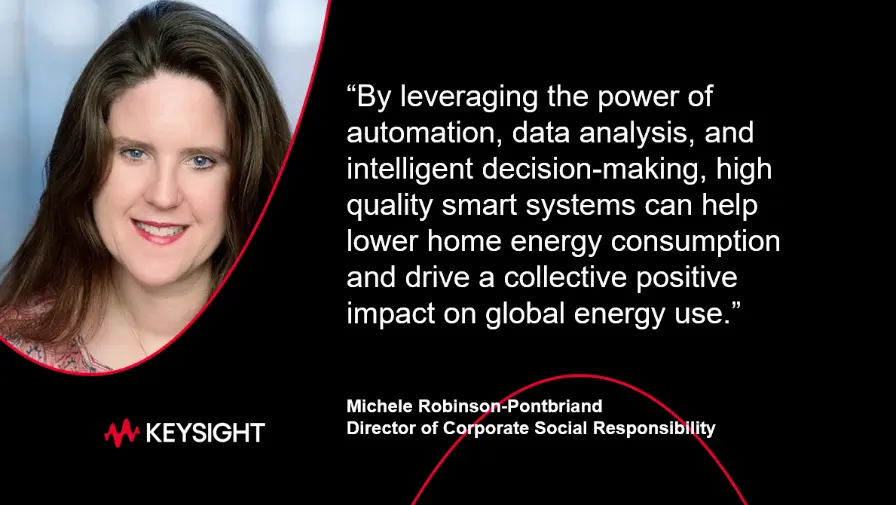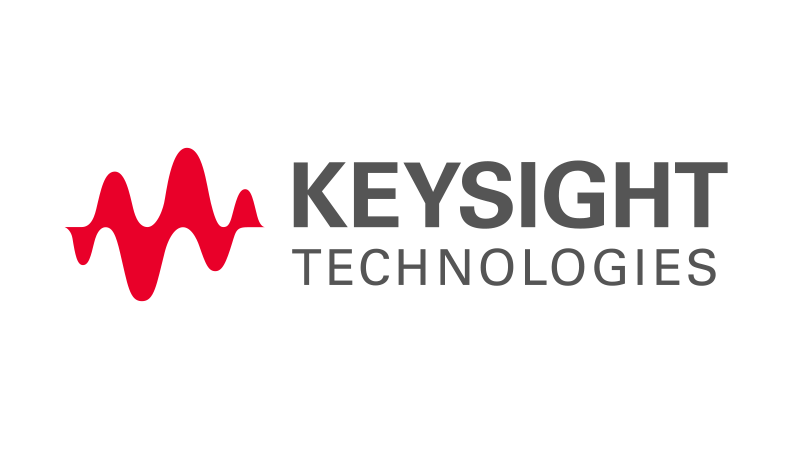Quality Smart Home Systems Enable a Sustainable Future Through Power Consumption Management
by Michele Robinson-Pontbriand, Director of Corporate Social Responsibility

As the world grapples with impacts from climate changes and increasing natural resource scarcity, the pursuit of a sustainable future is more critical than ever. As such, it is important to explore innovative solutions that support responsible natural resource utilization, including the reduction of power consumption in all aspects of our daily lives.
One such solution resides at the intersection of technology and our homes – smart home technology. If developed and delivered to expectations, smart home systems could revolutionize the way we manage, and reduce, home energy consumption. However, the quality of these solutions is critical to optimize their power management capabilities and ultimately drive a more sustainable future.
Span of Household Energy Consumption
Look around your home right now and consider all the things that use energy. The most obvious contributors to home energy use are, of course, heating and cooling. But there are also lights, televisions, game systems, mobile device recharging stations, alarm systems, and any number of appliances from refrigerators and coffee makers to clocks and toys.
Independently quantifying and managing the energy use of each of these household items is difficult. You may remember to turn the thermostat down when heating isn’t necessary, but do you remember to turn it up when air conditioning is not needed? How about leaving the house and forgetting to turn off the lights? Separately these instances may seem to have little impact on energy use, but when considered collectively these incremental impacts can really add up. Particularly across years of living in a home.
If you could be reminded to adjust the thermostat or turn off unneeded lights, and have the ability do so remotely, energy consumption could be lowered significantly over time. This is where smart home technology can provide a path toward a sustainable future.
Role of Technology in Home Energy Management
Smart home-enabled devices, appliances, and systems are designed to communicate with each other, integrate and analyze usage data, and communicate to the homeowner to help them make informed decisions about energy use. The connected nature of smart homes also drives automation capabilities and remote access to directly manage household energy use. For example:
- Smart thermostats optimize heating and cooling by learning homeowner behaviors and adjusting temperature settings accordingly to maintain comfort while minimizing energy use.
- Smart and energy-efficient lighting systems can be automatically turned off or have brightness levels adjusted to optimize energy use.
- Smart appliances and smart plugs can automate power when devices are not in use, preventing unnecessary standby power consumption.
- Integrated energy monitoring from connected devices enables homeowners to track energy use in real-time, allowing them to informed decisions about their consumption.
- While not a smart home device specifically, integration of renewable energy sources, such as solar panels, into the smart home ecosystem can enable further energy management by prioritizing renewable energy over grid-supplied electricity.
Quality of Smart Home Technologies Factor into Sustainability Impact
As smart home solutions proliferate, there is a lot that goes into delivering them. Beyond traditional appliances, smart-enabled devices for the home face a host of new technology requirements that go beyond standard product testing to now span networking, automation, and energy optimization.
From a sustainability perspective, any energy reduction from smart home technologies is only as good as the system, network, and associated devices that enable it. As such, high quality product development is critical to the down-stream energy savings potential. Before the elements of a smart home system even enter your home, they are designed, developed, and tested to ensure they can deliver to expectations and ultimately enable the mechanism for optimal energy management.
While there are many underlying technologies that make up the smart home solution market, some key areas of focus for enabling quality solutions before they get to the consumer include:
- Ensuring reliable wireless connectivity to the internet to manage data integration, communications, and automation.
- Validating that devices are designed and able to support the appropriate wireless standards for system implementation.
- Optimizing the power consumption of battery-operated smart devices, where current drain testing is essential.
- Assessing technologies, networks, and devices under real-world conditions because consumers expect them to operate as promised in the home environment.
Intersection of Quality and Smart Home Technologies Enables Path Toward a Sustainable Future
Embracing smart home technology provides a pathway to a more sustainable future. By leveraging the power of automation, data analysis, and intelligent decision-making, high quality smart systems can help lower home energy consumption and drive a collective positive impact on global energy use.
As such, I am happy to work for a company at the intersection of cutting-edge technology and smart home solutions. At Keysight, we provide leading-edge development and test solutions that help deliver high quality smart home devices and systems.
It is incredibly rewarding to support technologies that help us all manage the environmental impact of home energy use and provide a pathway to a more sustainable tomorrow.

